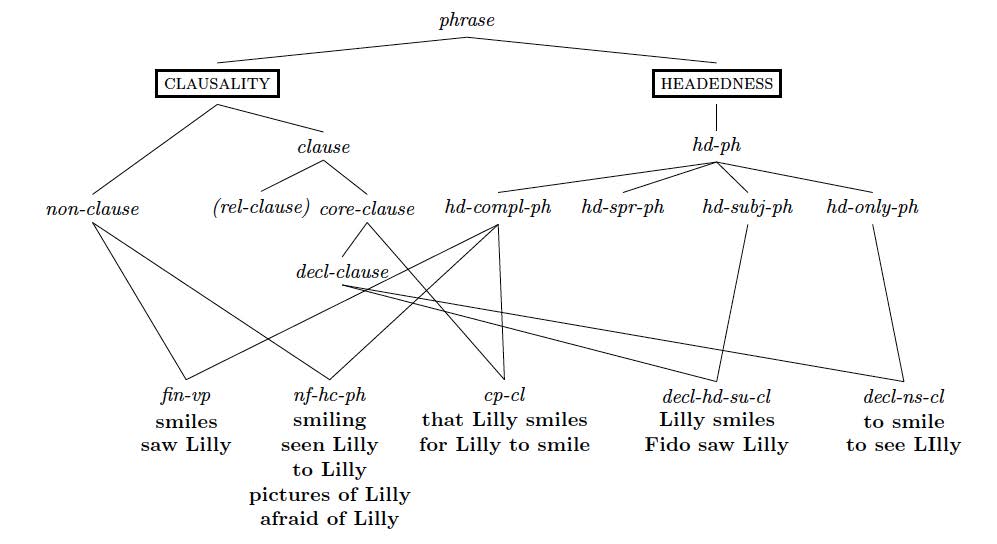Constraint-based Syntax 2: Week 3: Difference between revisions
| Line 141: | Line 141: | ||
2. Parse the following expressions in the [http://141.2.159.95:7003/wt/ Schematic Grammar] to test the constraints associated with the type ''phrase'' and its subtypes: | 2. Parse the following expressions in the [http://141.2.159.95:7003/wt/ Schematic Grammar] to test the constraints associated with the type ''phrase'' and its subtypes: | ||
a. word subj_seeker | a. word subj_seeker<br> | ||
b. word spr_seeker | b. word spr_seeker<br> | ||
c. comp_seeker word | c. comp_seeker word | ||
<br> | <br> | ||
Revision as of 07:34, 3 May 2017
The Phrase Hierarchy
Constraints on the Phrasal Types
Illustration of Constraint Inheritance
Since the type type{fin-vp} has several phrasal supertypes, a feature structure of that type must satisfy the following constraint:
Exercises
1. Using the handout Phrasal Types linked below, compute by hand the overall constraints that the maximal subtypes of type phrase have to satisfy (leave out the type decl-ns-cl). In other words: write into one feature structure all the constraints of each maximal subtype and its supertypes in the type hierarchy.
2. Parse the following expressions in the Schematic Grammar to test the constraints associated with the type phrase and its subtypes:
a. word subj_seeker
b. word spr_seeker
c. comp_seeker word
3. Now parse the following expressions in our Regular Online Grammar to see which information authentic lexical entries contribute to a phrase:
a. Real "subject seekers":
- dances
- likes Lilly
b. Real "specifier seekers":
- cat
- picture of Lilly
c. Real "complement seekers":
- likes Lilly
- puts the books on the shelf
After you have tried the examples above, think up 3 more examples for each of the 3 types and try them out in the regular online grammar.
Navigation:











